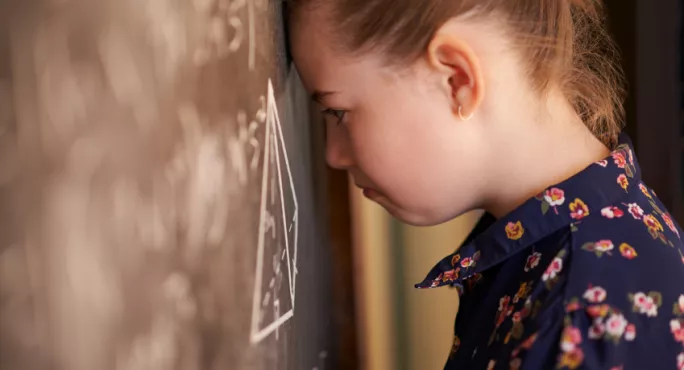Listening to the the BBC’s Today programme on Tuesday last week, I could not understand why I was feeling not a little queasy. I looked across the breakfast table and my wife gave me her ‘this is nuts’ look. It was only at this point that I realised the cause of my concern was a child recounting her trauma at having to face her Sats.
My first reaction was to feel disturbed by the voice of a distraught child reacting to the pressure of having to sit the test. However, what I found far more disquieting was the casual and unthinking manner in which a group of adults were using the voices of children to promote their campaign against Sats.
For some time now, the traditional reaction of children to tests has become medicalised and rebranded with the diagnosis of exam stress. The medicalisation of this experience has been accompanied by two important claims. The first claim is that children are far less resilient than previously assumed. They are often labelled as vulnerable and their reaction to their classroom experience is described through the idiom of stress and, in some extreme cases, of trauma.
The second claim is to reinterpret the meaning of pressure and to equate it with harm. The moment that the word pressure becomes associated with the experience of children, campaigners pull out their manual of mental health diagnosis to darkly warn of the impending psychological consequences. Regrettably, too many campaigners - including some educators - have lost sight of the importance of putting children under pressure. The stretching and challenging of children and guiding them out of their comfort zone is now often condemned by many adults, who confuse their own anxieties with those of young people.
In their open letter to the education secretary, opponents of Sats argued that testing causes stress and can make children feel like failures. It is, of course, possible that a test can provoke a stressful response, as well as a feeling of failure. In fact, just about anything outside of the normal range of childhood experience can provoke a stress response. Similarly, the occasional feeling of failure comes with the territory of childhood.
There is no simple cause and effect relationship between a test and particular response to it. How children respond to and experience a test is mediated through the meaning that is attached to it. And the meaning of testing is principally influenced by the way that adults - parents and teachers - represent and interpret this act to children. If children indeed feel that they are under intense pressure not to fail, it is because of the signals that they have picked up from the adults that influence them.
In principle, there is no reason why seven- to-11-year-olds taking their Sats should regard this event as a big deal. There are many examples of children responding to a test in a manner not dissimilar to the way that they would engage with a new classroom assignment. The problem today is that parents and teachers inadvertently sublimate their own anxieties through their children and it is they, rather than their offspring, who worry about the test a long time before it takes place. In effect, they often confuse their own response to a test with those of their children.
Unfortunately, the adult world also scripts youngsters to express their reactions to the challenges they face in school through the language of psychology. Just listen to children talk about the pressures of life - especially those from a middle-class aspirant background. They readily draw on the idioms of psychology and it is evident that they have become thoroughly socialised into its values by their parents and teachers.
Paradoxically, the campaign to boycott Sats is titled: “Let Our Kids Be Kids”. That is a great idea. But letting kids be kids requires that they are given more opportunity to explore the world and gain independence through interacting with their peers. That also means letting them take risks, experience pressure and stress - without an adult in a white coat attempting to shield them from existential pain. Unintentionally, the ethos promoted by the Let Our Kids Be Kids campaign is more likely to turn them into premature fussposts.
Frank Furedi is emeritus professor of sociology at the University of Kent
New survey reveals most teachers and parents want primary-school Sats scrapped, but more than half of pupils think the tests should stay
Want to keep up with the latest education news and opinion? Follow TES on Twitter and like TES on Facebook




